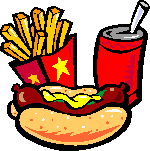 Carey K. Morewedge, Young Eun Huh and Joachim Vosgerau, Science 10 December 2010: Vol. 330 no. 6010 pp. 1530-1533 DOI: 10.1126/science.1195701
Carey K. Morewedge, Young Eun Huh and Joachim Vosgerau, Science 10 December 2010: Vol. 330 no. 6010 pp. 1530-1533 DOI: 10.1126/science.1195701
The consumption of a food typically leads to a decrease in its subsequent intake through habituation—a decrease in one’s responsiveness to the food and motivation to obtain it. We demonstrated that habituation to a food item can occur even when its consumption is merely imagined. Five experiments showed that people who repeatedly imagined eating a food (such as cheese) many times subsequently consumed less of the imagined food than did people who repeatedly imagined eating that food fewer times, imagined eating a different food (such as candy), or did not imagine eating a food. They did so because they desired to eat it less, not because they considered it less palatable. These results suggest that mental representation alone can engender habituation to a stimulus.